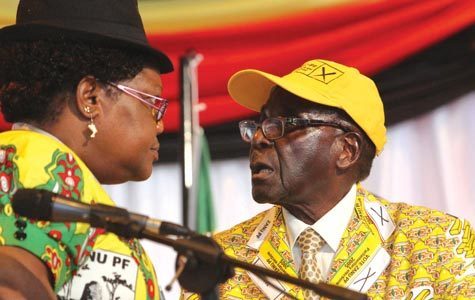
Intra-party democracy systems can have positive or negative consequences on national systems depending on the internal policies used by political parties or the political context of the country.
Sunday View by Resource Election Center
The ability of political parties to put in place progressive policies that ensure the professional selection of qualified candidates can go a long way in providing leadership that will effectively lead Zimbabwe towards sustainable development.
Though some might argue that too much party democracy may dilute the power held by political party leaders, the benefits of intraparty democracy at a macro level are much greater.
Therefore, internal party systems should uphold universally recognised democratic principles, for example, transparency, accountability and participation.
Internal party democracy has a wider impact on national governance. It enhances a necessary democratic culture within political parties that will naturally transcend to the society at large.
The representation of the electorate’s ideas starts at grassroots level and in most cases through political parties, therefore the internal party procedures should be free and fair so as to facilitate the transfer of the electorates’ views and ideas from the grassroots to the national level.
For that reason, the opening up of political parties is essential in that it creates space for new ideas and new members, who will then be part of the national system through national elections, if they are selected as party candidates.
- Climate change discourse: Academia must come to the party
- Careers and opportunities in law
- Elusive audience data is a key element in newsroom digital transformation
Keep Reading
Major effects of failed internal party democracy are imposition of candidates, disturbance of democratic stability and loss of political support for the party.
All parties will probably hold their primary elections soon. The fear is that the candidacy of the next elections will be botched because there are already certain individuals that have been targeted for nomination.
There will most likely be impositions of candidates by over-domineering elites. The imposition of candidates is worsened by the culture of clientelism that has perverted internal party politics. This may lead to voter apathy since the party would have failed to put forward the candidates preferred by the electorate.
Primary elections are generally divisive and have, in the past, led to intraparty conflicts. The possible forthcoming primary elections will serve as a barometer to measure the possibility of the recurrence of political violence in the 2013 national election.
If the selection of candidates is not managed well, there is a possibility of intraparty violence going beyond internal violence. If the selection of candidates is contested, there are more chances that the harmonised elections will be highly contested.
Already in some areas in the Mashonaland provinces, violence has erupted with some aspiring candidates accusing the old seat holders.
Internal democratic procedures, which lack the adherence to true democratic principles, have led to the splits and crises within political parties. For instance, the MDC has split into four parties since 2005 and Zanu PF internal politics are riddled with factionalism. This has been caused by disgruntled party supporters.
When a candidate loses primary elections, legally, there is a chance for them to stand as independent candidates. Consequently, this will probably lead to the splitting of the party’s votes and the loss of confidence of the electorate in the political systems.
Parties therefore need more open candidate selection methods guided by democratic internal and national legal frameworks that can influence political parties’ discretionary power in proposing candidates.











